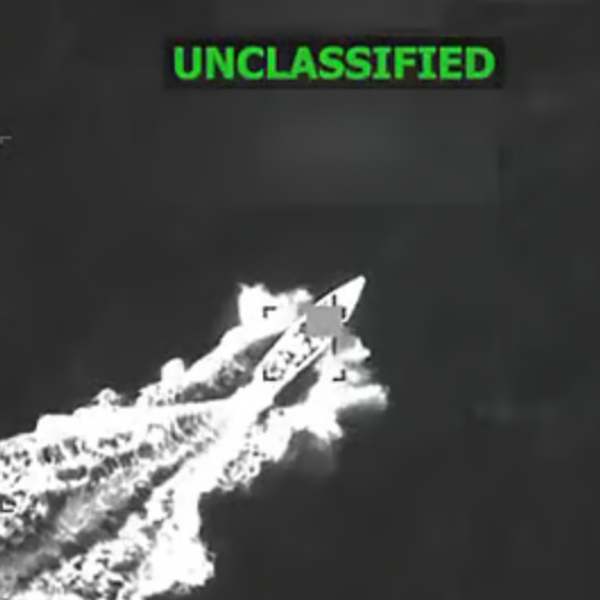
WASHINGTON (AFP) – Barack Obama, having just squeezed out of one political box on Syria, is not about to jump into a new one by setting a time limit on crisis diplomacy.
In his address to Americans on Tuesday, the U.S. president advanced moral, logical and geopolitical rationales for unleashing military force to punish Damascus for a chemical weapons attack.
But there were no hints as to how long Obama will let a Russian plan to secure Syria’s chemical arms, play out before summoning his generals.
Will it be days, weeks or months before Obama decides whether Moscow’s maneuvering is a face saver or has meandered to a diplomatic dead end?
The White House won’t say, reluctant to string another political trip wire for Obama, who talked himself into trouble by warning Syria that using chemical weapons would cross a red line.
“He did not want to box himself in,” said James Goldgeier, Dean of the School of International Service at American University.
Ahead of crucial U.S.-Russia talks on Syria in Geneva Thursday, Obama spokesman Jay Carney tangoed around timing queries.
“I don’t have a timeline to give you,” Carney said.
“What I can say is it obviously will take some time …. but we are also not interested in delaying tactics.”
Some foreign policy experts faulted Obama’s speech because it was foggy on when Syria would have to hand over its chemical weapons.
The absence of a countdown will lower the pressure on Damascus and take the heat off Russia, they say.
“Is he going to give them 24 hours to demonstrate Syrian compliance? 96 hours? a week? a month? Longer?” asked Kenneth Pollack of the Brookings Institution.
“All need to understand how the president intends to judge the success of failure of the Russian initiative, and how long he intends to give it to succeed or fail so we can know whether we are going to use force in Syria and when.”
The White House insists the last minute Russian diplomatic effort to head off U.S. air strikes only emerged because Obama’s threats of force were credible.
But the more time elapses after the August 21 chemical outrage, the more the momentum behind idea that Washington really is ready to fire off its cruise missile will inevitably dim.
Given mistrust between Russia and Western powers, the complexity of the Syria question and the difficulty of disposing of its chemical arsenal amid a brutal civil war, the chances of a swift resolution seem slim.
So it could be weeks or months until a solution is reached — assuming the Russian initiative does not crumble before then.
But for political and strategic purposes, the White House sees no advantage so far in talking timing.
Deadlines once set, also have a habit of expiring — and Obama aides will be loath to commit their boss to any preordained course of action on a matter of war and peace.
But without a timeline concentrating minds, diplomacy can dawdle.
“The disadvantage is that there is only going to be action on the diplomatic front if the Syrians and the Russians believe that the US threat to use force is credible,” said Goldgeier.
“It is hard to make it credible if there is no time frame in which they are supposed to respond.”
There may also be a practical case for avoiding ultimatums — as time specific demands can chafe consensus in framing U.N. resolutions.
In 2003, for instance, France blocked a U.S.-British bid to give Saddam Hussein a deadline to disarm, and the fabled “second resolution” authorizing military force in Iraq never materialized.
A spat over timelines is already clouding U.N. negotiations on Syria: a French draft resolution including a timetable for Assad to hand over his chemical arms was rejected by Russia on Tuesday.
Clocks have also stopped on Capitol Hill — where lawmakers wonder whether Obama will come back to ask for backing to unleash the U.S. military in Syria.
Democratic Senator Bob Casey said time for diplomacy was finite. “It’s very limited. It’s not a few days, but it’s certainly not multiple weeks,” he told CNN.
Democratic Senate leader Harry Reid has put aside a resolution authorizing force for now — but pledged to revive it if he senses foot dragging by Russia or Syria.
“If there is any indication they are not serious or (there is) a ploy to delay — then Congress stands ready to return to that Syria resolution,” Reid said.
But Congress’s leverage is compromised by doubts over whether the resolution would pass in the war weary Senate and the House.
One factor not hostage to timing is military capability. Defense officials said the U.S. Navy could hit Damascus at a moment’s notice.
The limited nature of the planned strikes — likely from sea launched cruise missiles, means the Pentagon does not have to manage large numbers of troops or air wings.
Four destroyers armed with Tomahawk cruise missiles remain in the Mediterranean and can launch strikes when ordered, officials said.
And there are are no current plans to pull out the U.S.S. Nimitz aircraft carrier battle group from the Red Sea.
Photo Credit: AFP/Evan Vucci








